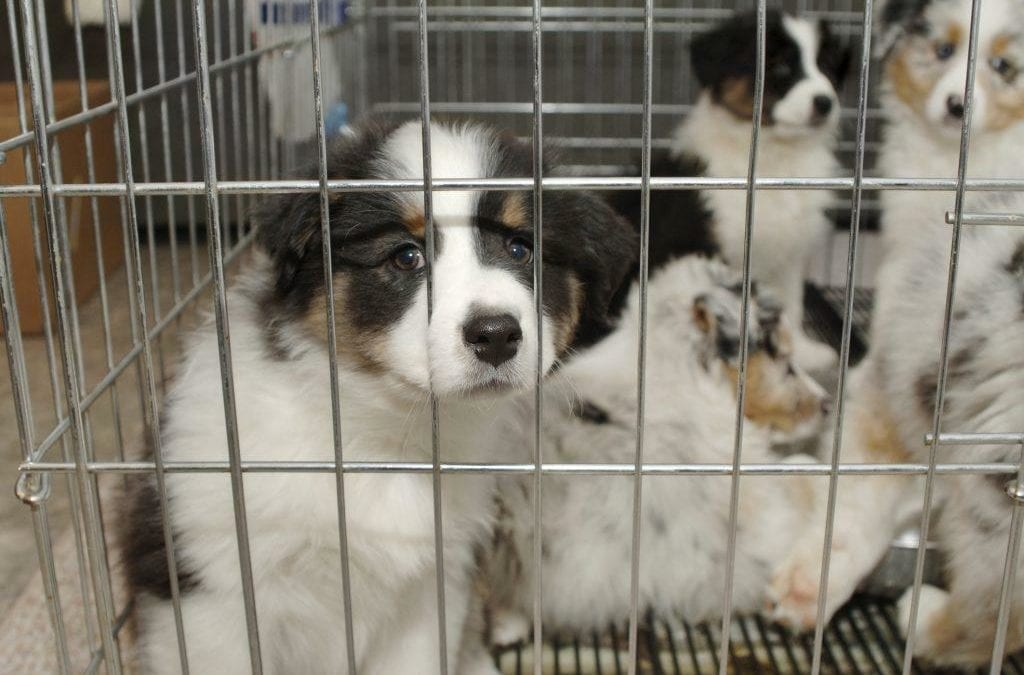Every year, over 2 million dogs are bred in illegal commercial breeding operations, also known as puppy mills. Despite the overcrowding in animal shelters and the overpopulation of dogs and cats, puppy mills (and kitten mills) are still thriving in the United States.
In honor of Puppy Mill Awareness Day (September 16, 2017), Union Lake Veterinary Hospital is on a mission to educate as many of our readers as possible about the conditions inside puppy mills, and what we can all do to put a stop to them.
What Is A Puppy Mill?
A puppy mill is essentially a large-scale dog breeding operation that typically places profit over the welfare of the animals involved. Many puppy mill dogs end up in pet stores and with individuals who act as third party sellers. Some of the traits of a typical puppy mill include:
- Dogs are housed in crowded, and often unsanitary conditions.
- Females are bred continuously and, when no longer able to produce a litter, they are often abandoned or killed.
- Puppies are removed from their mothers and littermates at very young ages and may suffer lifelong negative effects, including fear, anxiety, phobias, and behavioral problems.
- Because genetic quality is rarely taken into consideration, puppy mill dogs tend to be more prone to hereditary conditions such as heart disease, respiratory problems, blood disorders, and more.
- Despite these issues, these dogs often receive inadequate veterinary care.
- Due to the unsanitary conditions in a puppy mill, puppies often arrive at pet stores and homes with parasites or other diseases such as pneumonia.
Although it’s impossible to accurately track these breeding operations, many of which are illegal, it’s estimated that there are over 10,000 puppy mills currently operating in the United States.
Doing Your Part To Combat Puppy Mills
The good news is, there is a lot that we as individuals can do to keep money flowing away from the illegal and poorly-run breeding operations, such as:
- Adopt your pets from an animal shelter or rescue organization rather than from a pet store or breeder. Each time a pet owner chooses to “adopt, not shop”, the commercial breeding industry loses a customer.
- Raise awareness about the plight of puppies and kittens in commercial breeding operations. Encourage friends and family members to adopt, and make sure they understand what happens in puppy and kitten mills.
- Contact your local government leaders and ask them to support legislation that regulates and reduces the breeding of dogs and cats, as well as laws relating directly to retail pet sellers.
- Speak with your local pet store owners about switching to humane sources for the puppies and kittens they sell (refer them to this list of humane pet resources for inspiration).
The most important thing to remember when it comes to animal advocacy is: don’t give up! The fight against commercial breeding operations has been in the works for decades, but each individual mind and heart that is changed is a step forward for the welfare of these precious dogs and cats.
If you have any questions or concerns about your own pet, please don’t hesitate to contact your team at Union Lake Veterinary Hospital.

